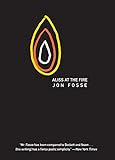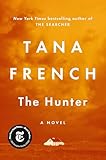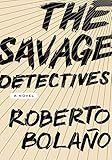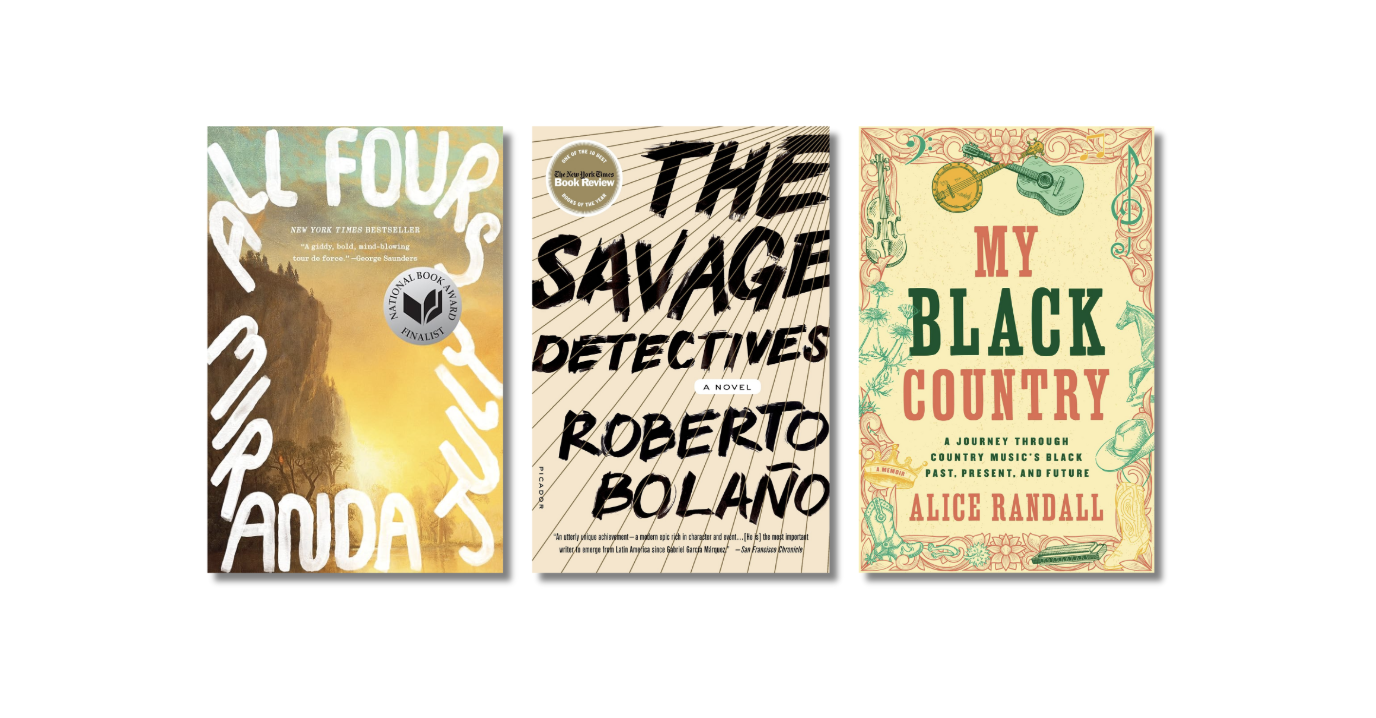How is fiction like music? As I consider my reading practice over the last year, I feel compelled to ask that question. Reading: that is, listening. I’m a music critic, so my life revolves around processing and interpreting sound; sometimes, though, I need a break from kick drums and synthesizers, so I turn to audio to reveal the rhythms in sentences, the way a great story can pull me along the way an orchestral work does, and the melodies that emerge when writers choose their words with imagination and grace.

 This year started and ended with two threnodies – Han Kang’s The White Book, translated by Deborah Smith, and Jon Fosse’s Aliss at the Fire, translated by Damion Searls. (It is an accident that both are also by recent Nobel laureates.) These works dwell at a living soul’s point of contact with death, their experimental forms exploring how grief undoes us. Short works are great for brisk winter walks, and these two suited my pace when I donned my puffer jacket and hiked the barren expanse of my usually leafy Nashville neighborhood Kang’s elegy for a sister lost in infancy is spare, calm, intense; I imagine the pianist and composer Kelly Moran, whose album Moves in the Field also mourns a loved one, creating a sonata from it. Fosse’s fugue is musical already – multiple voices counter and blend with each other across time, marking intergenerational trauma. Give that one to Meredith Monk.
This year started and ended with two threnodies – Han Kang’s The White Book, translated by Deborah Smith, and Jon Fosse’s Aliss at the Fire, translated by Damion Searls. (It is an accident that both are also by recent Nobel laureates.) These works dwell at a living soul’s point of contact with death, their experimental forms exploring how grief undoes us. Short works are great for brisk winter walks, and these two suited my pace when I donned my puffer jacket and hiked the barren expanse of my usually leafy Nashville neighborhood Kang’s elegy for a sister lost in infancy is spare, calm, intense; I imagine the pianist and composer Kelly Moran, whose album Moves in the Field also mourns a loved one, creating a sonata from it. Fosse’s fugue is musical already – multiple voices counter and blend with each other across time, marking intergenerational trauma. Give that one to Meredith Monk.

 In spring, I craved something brighter, more world-building: the literary equivalent of great pop music. Genre fiction fills the bill – like the bright sounds of reigning queens Taylor and Beyoncé (and this year, Chappell and Sabrina), it envelops me and hastens my steps. I love Tana French’s brisk prose and the way her crime novels expose the complex weave of Irish family, class and national inheritances: her latest, The Hunter, puts her Springsteen-esque retired Chicago cop Cal Hooper in the pub with his Irish neighbors, trading songs and treacheries. In summer I turned to R.F. Kang’s new classic Babel, which is more like a prog rock masterpiece: sprawling, fantastical, with a serious message about colonialist violence embedded within its epic yarn.
In spring, I craved something brighter, more world-building: the literary equivalent of great pop music. Genre fiction fills the bill – like the bright sounds of reigning queens Taylor and Beyoncé (and this year, Chappell and Sabrina), it envelops me and hastens my steps. I love Tana French’s brisk prose and the way her crime novels expose the complex weave of Irish family, class and national inheritances: her latest, The Hunter, puts her Springsteen-esque retired Chicago cop Cal Hooper in the pub with his Irish neighbors, trading songs and treacheries. In summer I turned to R.F. Kang’s new classic Babel, which is more like a prog rock masterpiece: sprawling, fantastical, with a serious message about colonialist violence embedded within its epic yarn.
 Summer is a good time for dreamy indie rock, which was ruled by women this year – my favorite album of 2024, Cassandra Jenkins’s My LIght, My Destroyer, falls in this category. Gotta stay on top of trends in this scene, right? In July I dove into Miranda July’s All Fours, a serious sex romp that is (to quote another indie music auteur, Caroline Polachek) so hot it hurt all of our feelings. July, who released a couple of quirky spoken-word records in the late 1990s, writes dialogue that wrings poetry from the mundane, the way song lyrics can. The sex scenes in All Fours explode with the force of a great dance beat – and in fact, hip hop dance, celebrated as a magical, transformative art, is a major part of the action that makes All Fours unique.
Summer is a good time for dreamy indie rock, which was ruled by women this year – my favorite album of 2024, Cassandra Jenkins’s My LIght, My Destroyer, falls in this category. Gotta stay on top of trends in this scene, right? In July I dove into Miranda July’s All Fours, a serious sex romp that is (to quote another indie music auteur, Caroline Polachek) so hot it hurt all of our feelings. July, who released a couple of quirky spoken-word records in the late 1990s, writes dialogue that wrings poetry from the mundane, the way song lyrics can. The sex scenes in All Fours explode with the force of a great dance beat – and in fact, hip hop dance, celebrated as a magical, transformative art, is a major part of the action that makes All Fours unique.
 In autumn, as things got serious across the nation, I longed for something hugely absorbing to counteract my inevitable creeping sense of dread. Something like a Dylan song, I guess – like “Vision of Johanna” or “Highway 61 Revisited,” with plenty of jokes embedded in its expansive narrative. It was time for me to finally immerse myself in the world of Roberto Bolaño, the most Dylanesque of contemporary writers, a master of the referential, the earthy and the comic. Truth be told, I’m still only halfway through the audiobook of The Savage Detectives (it’s 27 hours long!) – I’m returning with it the way I keep cueing up Blonde on Blonde, when I need the voice of a trickster prophet to pull me out of cloudy reality into an epic space.
In autumn, as things got serious across the nation, I longed for something hugely absorbing to counteract my inevitable creeping sense of dread. Something like a Dylan song, I guess – like “Vision of Johanna” or “Highway 61 Revisited,” with plenty of jokes embedded in its expansive narrative. It was time for me to finally immerse myself in the world of Roberto Bolaño, the most Dylanesque of contemporary writers, a master of the referential, the earthy and the comic. Truth be told, I’m still only halfway through the audiobook of The Savage Detectives (it’s 27 hours long!) – I’m returning with it the way I keep cueing up Blonde on Blonde, when I need the voice of a trickster prophet to pull me out of cloudy reality into an epic space.


 This is just a sample of my year’s reading playlist – and by the way, I did read some great music books too. For another epic view, I dipped into jazz sage Henry Threadgill’s brilliant autobiography Easily Slip Into Another World. Alice Randall illuminated the history of my adopted hometown in new ways with her memoir-meets-history of country music’s multiracial life, My Black Country. A great complement to that book is Lo-Fi, the debut novel by Liz Riggs, which captures the current vibe of Nashville’s striving
This is just a sample of my year’s reading playlist – and by the way, I did read some great music books too. For another epic view, I dipped into jazz sage Henry Threadgill’s brilliant autobiography Easily Slip Into Another World. Alice Randall illuminated the history of my adopted hometown in new ways with her memoir-meets-history of country music’s multiracial life, My Black Country. A great complement to that book is Lo-Fi, the debut novel by Liz Riggs, which captures the current vibe of Nashville’s striving  indie scene
indie scene  better than anything else I’ve read. And I’d never thought about Kurt Cobain or Selena, among many subjects, the way Vanessa Angelica Villaréal does in her daring essay collection Magical/Realism: Essays on Music, Memory, Fantasy and Borders. Finally, I’m so happy to have David Browne’s Talkin’ Greenwich Village, a thoroughly entertaining deep dive into a scene I can never learn enough about, packed with testimonies from the musicians who made that bohemian capitol vibrate with fresh ideas. The beat goes on.
better than anything else I’ve read. And I’d never thought about Kurt Cobain or Selena, among many subjects, the way Vanessa Angelica Villaréal does in her daring essay collection Magical/Realism: Essays on Music, Memory, Fantasy and Borders. Finally, I’m so happy to have David Browne’s Talkin’ Greenwich Village, a thoroughly entertaining deep dive into a scene I can never learn enough about, packed with testimonies from the musicians who made that bohemian capitol vibrate with fresh ideas. The beat goes on.










